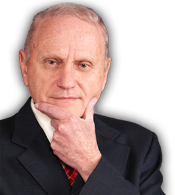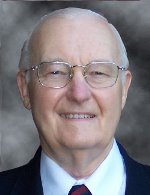SECOND EDITION
By Dr. Aaron J. Shenhar
Institute Professor of Management
Stevens Institute of Technology,
Hoboken, NJ, USA
and
R. Max Wideman, FPMI
AEW Services
Ontario, Canada
Introduction
The purpose of this paper is to bring together the findings of the previous papers in this series to show a connecting thread that, if followed, leads to a better understanding of the project management process, and hence to higher levels of project success. This thread is summarized as follows
- The meaning of project success
- The nature of fundamentally different types of project
- Their technological content
- Their scope and degree of complexity
- The nature of project work
- Project leader personality traits and consequent management styles, and
- Selection of most appropriate project leader for best chance of project success.
But what is “project success”, and how might such success be influenced by the particular type of project and how it is managed?
Any serious discussion of the concepts of project management require that the terms to be used are clearly defined. While there is a general understanding of what a project is and what project management is about, there is no consensus amongst practitioners as to precise definitions of either of these terms. So we must start our journey by establishing what we mean by the terms we use for the purposes of this paper.
For examples of different definitions in common use in each case, visit the PM Glossary on wideman.com (http://www.maxwideman.com/pmglossary/index.htm) and look up each term!
Project and project management
In the context of “project success”, our preferred definition of project is as follows. 1
“A unique set of coordinated activities, with definite starting and finishing points, undertaken by an individual or organization to meet specific objectives within defined time, cost and performance parameters.” To this we would add that the project is only completed when the intended product or deliverable has been satisfactorily transferred into the hands of the customer.
This definition implies that a project involves both process and organization and this is quite distinct from the “product” which is the resulting output. In this respect, the word “project” is often misused to refer to “the end result”, i.e. the “product”. It should also be noted that the process is a “journey through time” and that the objectives, expressed in terms of scope, quality, time and cost determine the “boundaries” or limitations imposed on this journey. The measure of “customer satisfaction”, on the other hand, is the measure of the project’s success as reflected in the perception and acceptance of the end product.
Project management, then, is the management of the process or journey just described. Yet, it too has a fundamental underlying concept. Perhaps this was best expressed more than 2,500 years ago by the famous Chinese philosopher Confucius, when he said “In all things, success depends upon previous preparation – and without preparation there is sure to be failure.”
In modern parlance, this elementary observation translates into a simple two-step sequence: “Plan before doing”. This basic concept is the foundation of the project life cycle by which projects need to be managed. That is to say, first plan, then do. This is also reflected in the Deming Quality mantra “PDCA” (also known as the Deming Wheel) which stands for Plan, Do, Check, Act and describes the Deming quality control management cycle.
Project Success
Since the ultimate objective of project management is to be “successful”, we should first deal with the issue of “success”. What really constitutes “project success”? From a project process perspective, the classic response is being “On time, within budget and meeting requirements.” However, from a product perspective, a successful project is clearly one in which the “customer” ends up satisfied.
The former criteria have exercised project managers for decades, but once a particular project is completed, the results in terms of the parameters described are merely history. In contrast, the success of the product will continue to be an issue for its remaining useful product life. Clearly, “project product success” eventually transcends “project process success”.
More…
To read entire article, click here
Editor’s note: Second Editions are previously published papers that have continued relevance in today’s project management world, or which were originally published in conference proceedings or in a language other than English. Original publication acknowledged; authors retain copyright. This paper was originally published on the pmforum.org website in 2000. It is republished here with permission of the authors.
How to cite this paper: Shenhar, A.J. & Wideman, R. M. (2000). Optimizing Success by matching Management Style to Project Type; First published on PMForum.org web site September 2000, updated April 2002; republished in PM World Journal, Vol. IX, Issue XI, November 2020. Available online at https://pmworldlibrary.net/wp-content/uploads/2020/11/pmwj99-Nov2020-Shenhar-Wideman-optimizing-success-by-mathing-management-style-to-project-type.pdf
About the Authors

Dr. Aaron Shenhar
New Jersey, USA
![]()
Professor of Project and Technology Management, Chairman and Founder, Technological Leadership Institute, SPLWIN Group, Dr. Shenhar is regarded as one of the world’s leading experts in project management, innovation, and leadership. He holds five academic degrees in engineering and management, including three degrees from Stanford University and two from the Technion in Israel.
He has been named, “Engineering Manager of the Year,” by the Engineering Management Society of IEEE. He was the first recipient of the Project Management Institute (PMI) Research Achievement Award as well as the recent International Project Management Association (IPMA) Research Achievement Award. Dr. Shenhar was also awarded a PMI Fellow Award and is a Fellow of the NASA Science Council of Project Management Research.
Dr. Shenhar is also an experienced manager and executive. He served in the Israeli Navy, before joining the defense industry, where he has been involved in managing projects, innovation, R&D, and high-tech businesses for almost 20 years. Working for Rafael, Advanced Defense Systems, he participated in all phases of engineering and management — from project manager up through the highest executive posts. As executive, he served as Corporate Vice President, Human Resources, and later, President of the Electronic Systems Division.
In his second career of over 20 years in academia, he was a tenured professor, serving at several universities where he founded new programs in Project and Technology Management, among them Stevens Institute of Technology, Rutgers University, University of Minnesota, and Tel-Aviv University. Dr. Shenhar’s research has focused on project and program management, technology and innovation management and leadership of professionals in technology-based organizations. Based on his extensive research, he developed the methods of Strategic Project Leadership(R) and the “Diamond of Innovation,” which teach corporations how to focus projects and innovations on business results and adapt their management processes to the specific goal and context.
With six books and over 150 publications, which were cited more than 5000 times and published in leading journals such as Strategic Management Journal, Management Science, Sloan Management Review, Research Policy, or IEEE Transactions on Engineering Management, his writings have influenced project and technology management research and education around the world. His publications are highly regarded and used in the curriculum of a growing number of corporations and universities.
He served as consultant to major corporations such as 3M, Honeywell, AT&T, Trane, Dow Jones & Co., US Army, NASA, NSA, Lockheed Martin, Merck, Tata Industries, and Israel Aerospace Industry.
In 1993 he led a team of 30 researchers in an industry-wide study involving most defense development programs in Israel, and resulting in recommendations to the defense department on how to overhaul the industry and the department’s acquisition and program management processes. In 2005 he led a large NASA study building a NASA-specific program management framework. Dr. Shenhar has also developed the framework used by the Aerospace Industry Program Excellence Award and is member of Aviation Week’s annual evaluation team. Now in his third career, Dr. Shenhar is the founder of TLI, and SPLWIN, education and consulting groups, dedicated to aligning projects and innovation with business.
He is co-author of the recent book, Reinventing Project Management: The Diamond Approach to Successful Growth and Innovation, Harvard Business School Press. The book was selected among the top five best business books of the year.

R. Max Wideman
Ontario, Canada
![]()
Max Wideman, FCSCE, FEIC, FICE, FPMI, FCMI, is a globally-recognized author, consultant and expert. He is widely recognized as one of the world’s leading authorities on modern project and program management. The Wideman PM Glossary is one of the most widely-referenced lexicons of PM terms and terminology in the world today. For those who wish to use it, with over 6,000 entries, it is available free on-line on his web site at www.wideman.com. There you will also find details of smaller but more up-to-date industry-dedicated versions available for download at very modest costs. Max’s personal website is one of the world’s best-known online resources for project and program management.
Max Wideman has over 50 years of PM-related experience in a wide range of projects and industries. He is a registered professional engineer specializing in project management consulting. Max is a Fellow of the Institution of Civil Engineers (UK), a Fellow of the Engineering Institute of Canada, a Fellow of the Canadian Society of Civil Engineers, a Fellow of the Project Management Institute (PMI®) and a Fellow of the Chartered Management Institute (UK).
Max served on the PMI Board of Directors as VP Member Services (1984), President (1987) and Chairman of the Board (1988). As Chairman of PMI’s Standards Board, Max won PMI’s Distinguished Contribution Award in 1985 and Person of the Year Award in 1986. As chairman, he led a team of PMI volunteers to document the PM Body of Knowledge (PMBOK), published by PMI in 1987. In 2018 he cleaned up his hard copy of that document and, together with the Glossary of the day, he has now made all that available in PDF format via his web site.
Max Wideman is the author of A Framework for Project and Program Integration (PMI, 1991) and Project and Program Risk Management: A guide to Managing Project Risk and Opportunities (PMI, 1992). He contributed chapters to Project Management Handbook (PMI/Jossey-Bass, 1998); Field Guide to Project Management (Van Nostrand Reinhold, 1998, 2004) and Project Management for the Business Professional – A Comprehensive Guide (Wiley, 2001). His most recent book is A Management Framework for Project, Program and Portfolio Integration (2004 – Now only available in PDF format).
Max is a former long-time resident of Vancouver, British Colombia where, in 2006 and together with five other enthusiastic PM supporters and a donation of $50,000, he launched the Wideman Education Foundation (WEF). The WEF’s goal is to promote project management education through practical project competitions in partnership with educational institutions – in this case with the business department at Simon Fraser University in Burnaby BC. Max now resides in Richmond Hill, Ontario, Canada, so with the help of members from the PMI Chapter in Toronto, WEF has also held very successful competitions there since 2017.
Since 2012 Max has been representing Canada as a Subject Matter Expert (SME) with the International Standards Organization (ISO) committees working on Project Management Standards or Guides.
Max can be contacted at maxw@maxwideman.com. His web site is www.maxwideman.com The WEF web site is https://www.widemaneducationfoundation.org









